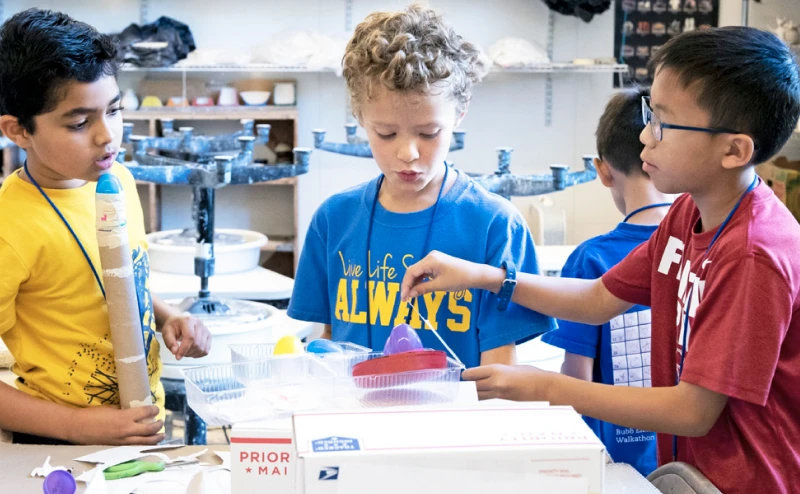This week, we’re continuing our alumni series with pianist and composer Yuma Sung, a film score composer and a recent graduate of NYU and the Manhattan School of Music. He has toured Japan numerous summers, with a CD released on Columbia Music Entertainment called Yuma Style. He has played with/for Oscar Peterson, David Benoit, Dave Brubeck, Patti Austin, Kirk Whalum, Jon Faddis, Gregg Field, Wayne Bergeron, and many more.
How did you get started in the arts?
The short answer – From what I recall, when I was six, my parents took me to a piano studio, and I saw someone playing the piano there. I must have asked my mom if I could start taking lessons.
The long answer – When I was 9, I had already taken classical piano lessons for a few years. One day, my parents and I were somehow visiting my first piano teacher, and my teacher mentioned to us that there was a concert happening that night featuring David Benoit and another pianist. I guess my parents happened to be free that night, because we went there (I remember it was at the SJSU Music Hall). I was excited just entering the hall because it was my first time seeing a drum set, an acoustic bass, and two grand pianos on a stage. The other pianist happened to be Taylor Eigsti, (another CSMA alum). Taylor opened the show, then David played his set, then the two of them played, along with a sax player. I don’t remember much from what I heard that night, but I do remember seemingly being the first to give a standing ovation at the end of the concert. So that’s how it started!
What did you study at CSMA and who were your instructors?
I studied Jazz Piano and Composition with Randy Masters, who also taught Taylor Eigsti. Randy was generous and always encouraged me to keep thinking differently. I’d sometimes bring in a song I’d be working or stuck on, and he’d always seem to find a way to show me ways or approaches to writing that I’d never thought about.
What was your favorite class you took at CSMA? What was a favorite moment or lesson?
While I was at CSMA for private lessons with Randy, I’m not sure how it happened, but after a while, I was in a trio class at CSMA, with Randy being the instructor. The bass player and drummer and I went to the same high school, and we all happened to be very good in high school. It was, if not, one of the first times I got to experience working in a trio setting, with Randy’s guidance. It was there where I learned how to listen, and how to communicate with members of the band, pretty much the basics of what a musician needs to know and do when collaborating with other musicians.
Where did you go for college? What are you up to now?
I went to college at the Manhattan School of Music, initially for Jazz Piano. In my sophomore year, they had reinstated the Jazz Comp program for undergrads (seemingly for me because, I had expressed interest in writing), and I was fortunate to write for big bands and orchestras. For Grad school, I went to New York University for Film Scoring.
During the school year, I accompany the NYU Jazz Choir and NYU Women’s Choir, and help out in two ensembles. Currently, I’m the Musical Editor for a musical currently in production, I occasionally accompany a youth gospel choir in Harlem called Songs of Solomon, and am working on a couple of arrangements and pieces, and playing of course.

What drew you to film scoring?
When I was watching movies at a young age, I noticed I began to listen to and for the music increasingly. Some of my favorite songs or pieces are directly from film scores, and I find that I sometimes write more cinematically or melodically than others. A Film score usually isn’t the first thing you remember when watching a film (the characters, the story), but what draws me is that some of the best film scores can completely tell and emote a film and the story of the film with a few motifs and a couple of themes.
How did CSMA help you prepare for your musical career?
Taking lessons and classes with Randy at CSMA helped out a lot in my growth as a musician.
What advice do you have for young, aspiring musicians?
As someone once said, stay hungry and stay foolish. For some, it’s easy to get discouraged, but if you have and can keep the passion and discipline to love what you do and put in the work to do it, you’ll be alright.
Be friendly, flexible, and open as well. Friendly – The people you meet briefly now might be people you’ll be working with a lot in the future. Flexible- Anything can happen while you’re on the job – soundcheck is running late, there’s been a last minute change of location or time, you now only have less than 5 minutes to eat before you can again in 6 hours, the musicians you hired are running late, etc. For the most part, most things on the gig that happen aren’t anything to be too stressed or frustrated about. Open – if someone asks you to do something you feel you’re not quite ready to do yet, usually you should go for it and say yes. Music can take you to many different places, and you’ll never know where until you go out and do it.



